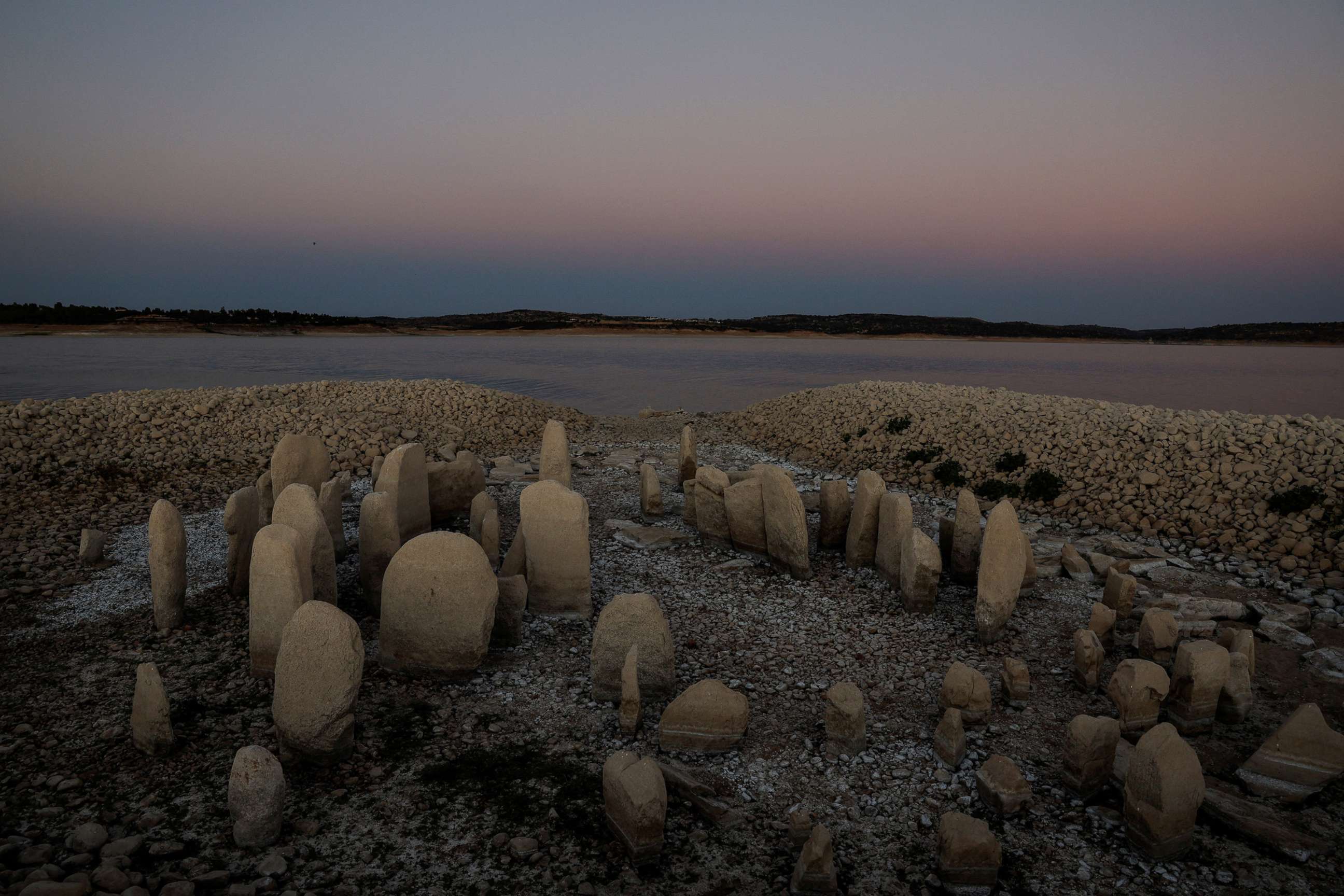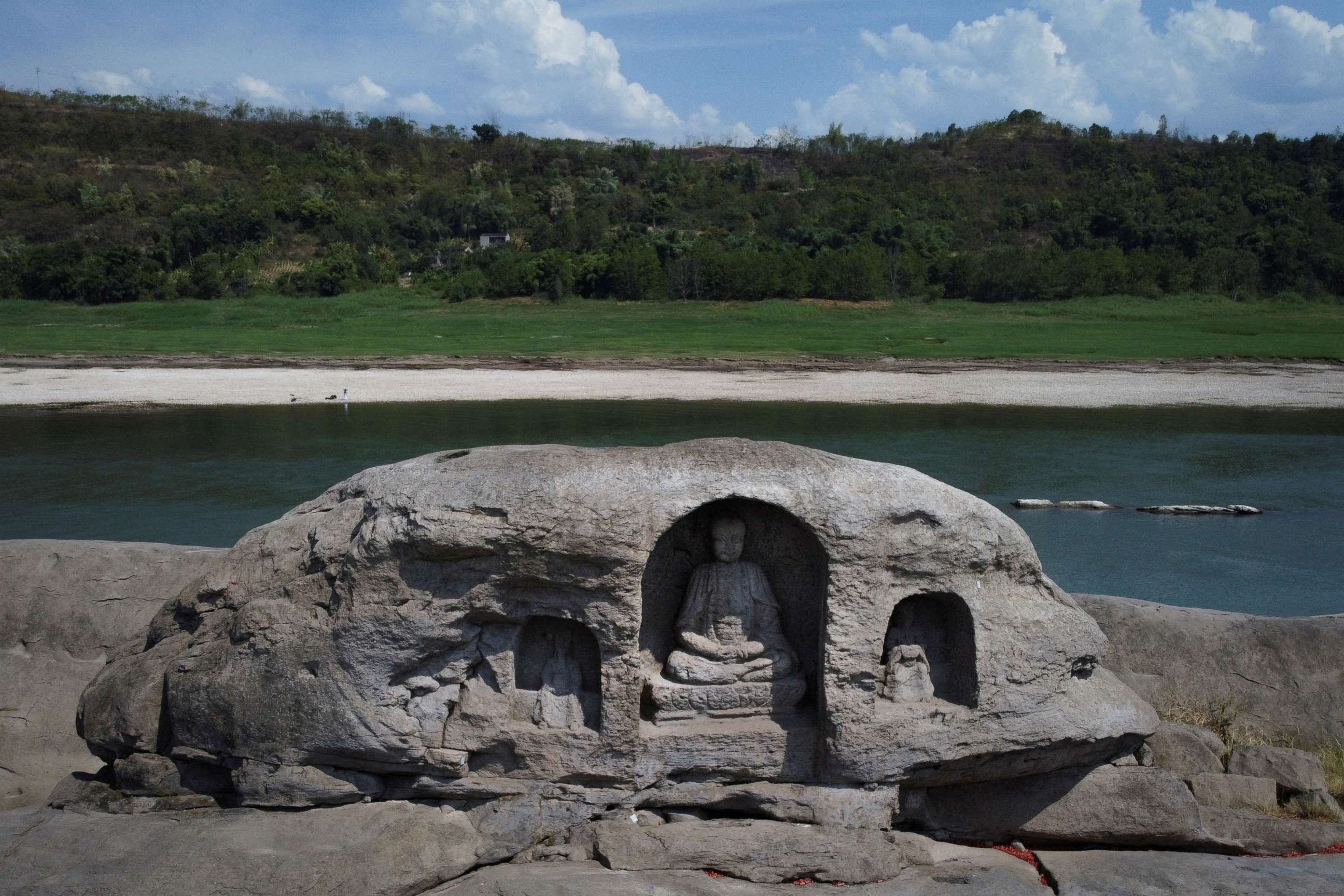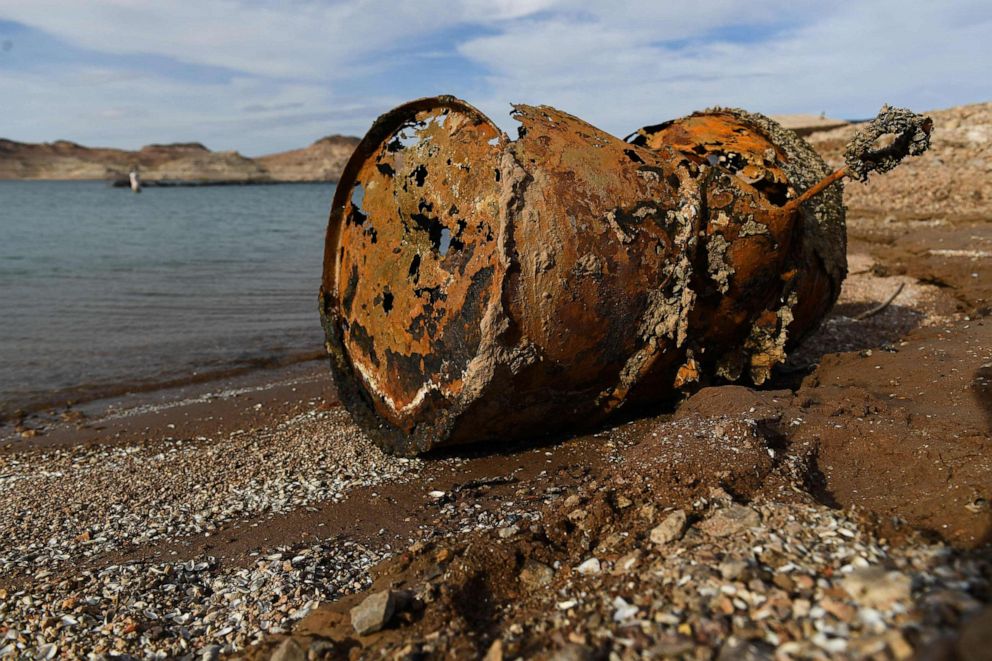Scorching, global drought has uncovered lost artifacts around the world
Sites across the world have discovered historic relics as water levels recede.
A worldwide drought has devastated communities across the globe, but it also has fascinated millions as historic artifacts have come to the surface, igniting memories from decades to centuries before.
Let's go prehistoric…
This August, Texas' Dinosaur Valley State Park saw rare dinosaur tracks that are usually covered by water and sediment. With the Paluxy River running through only a portion of its usual berth, tracks from Acrocanthosaurus dinosaurs have come to the light.

Jeff Davis, parks superintendent at Dinosaur Valley, told ABC News these tracks could date back millions of years. Davis added that Sauroposeidon tracks have become visible on the opposite side of the park, adding to the season's remarkable attractions.
With heavy rainfall hitting Texas, Davis says these tracks will likely be covered by water again soon. However, that might be best for their livelihood.

"It's the river that will bring in silt and sediment and pile those on top of the tracks. That's what preserves them, that's why they're still here after 113 million years or so," Davis said.
A masterpiece with an unknown creator
Amid a devastating drought in the country, a Spanish 'stonehenge' has become fully visible for the second time since it became covered in water in the 1960s.

The striking circle of dozens of megalithic stones, officially called the Dolmen of Guadalperal, has existed since 5000 BC.
However, it was first discovered by German archaeologist Hugo Obermaier in 1926 before it became flooded in 1963 due to a rural development project under Francisco Franco's dictatorship.
No one knows who created the dolmen.
Now, the structure sits in a corner of the Valdecanas reservoir located in the country's central province of Caceres.

As Spain faces its worst drought in 60 years, officials say the water level in the reservoir has dropped to 28% capacity.
Remnants of WWII surface
Going east, Europe's sizzling summer drought left over a dozen Nazi ships surfacing on the drying Danube River near Prahavo, Serbia.

The ships were part of Nazi Germany's Black Sea fleet in 1944 as they retreated from advancing Soviet forces, officials said.
Many of the ships still hold ammunition and explosives, posing a risk to shipping on the river, officials said.

The vessels have limited the navigable section of the stretch near Prahova to 100 meters, significantly slimmer than the prior 180 meters ships had access to. Serbian officials have taken to dredging along the river to salvage the usable navigation lanes, authorities said.
The Danube levels near Prahovo are less than half their average for this time of the summer, experts say.
Buddhist relics emerge in China
The Far East isn't escaping the scorching season. On China's Yangtze River, a formerly submerged island has emerged with a trio of Buddhist statues believed to be 600 years old.
Officials believe the statues were built during the Ming and Qing dynasties, state media Xinhua reported. One statue depicts a monk sitting on a lotus pedestal.

The statues have emerged on the river near the southwestern city of Chongqing.
Experts say the Yangtze is about 45% lower than its normal height. The state broadcaster CCTV said that as many as 66 rivers across 34 counties in Chongqing have dried up.
A bridge once traveled…
An ancient bridge in Yorkshire, England, has risen back over the water that has covered it since the 1950s.
Members of the public were seen crossing what was an ancient packhorse bridge in August. The bridge has been invisible since it was flooded to build the Baitings Reservoir in the 1950s.

Now, record high temperatures and low water levels at the reservoir have revealed the remains of the ancient road.
Experts say the Baitings settlement expanded rapidly in the Industrial Revolution, but had been long in decline by the time it was flooded.
Reminders from droughts come before
"Hunger stones" have become revealed in Germany on Rhine River, rekindling memories of past droughts.
The stones bear dates and people's initials. Dates visible on stones seen in Worms, south of Frankfurt, and Rheindorf, near Leverkusen, included 1947, 1959, 2003 and 2018, Reuters reports.
The tradition of hunger stones dates back to the 15th century, experts say. They were embedded into dried-up riverbeds to warn people in the future that hard times were near.

A 2013 study about droughts in Czech history explains the phenomenon through one of the most famous hunger stones.
"It expressed that drought had brought a bad harvest, lack of food, high prices, and hunger for poor people. Before 1900, the following droughts are commemorated on the stone: 1417, 1616, 1707, 1746, 1790, 1800, 1811, 1830, 1842, 1868, 1892, and 1893," the study read.
The ever-alarming Lake Mead
The U.S.'s largest reservoir has raised concern as its water levels have reached record lows to reveal alarming remnants. Since May, officials have found five sets of human remains in Lake Mead.
The fifth set of remains were found on Aug. 15 at Swim Beach in the Lake Mead National Recreation Area around 8:00 p.m., according to the National Park Service.

Along with the shocking collection of human remains found amid the shrinking water levels, officials reported a sunken WWII era vessel to have emerged from the reservoir.
The vessel, a Higgins boat used for beach landings during WWII, comes to the surface after the same receding waters have revealed multiple bodies, sunken pleasure boats and a myriad of previously-submerged items.

Officials said the water levels are so depleted in the lake, they could soon reach "dead pool" status, in which the water is too low to flow downstream to the Hoover Dam. According to the U.S. Bureau of Reclamation, the minimum water surface level needed to generate power at the dam is 1,050 feet.
Fit for an emperor
A bridge used by emperors in ancient Rome has risen to new heights amid Italy's worst drought in 70 years.
Coined "Nero's bridge" after the Emperor Nero of the first century, the drought has exposed the piers of the bridge over the Tiber River, officials said.
The bridge was constructed to help the emperor reach his gardens near the Janiculum Hill, which resides close to what is present-day St. Peter's Square, historian Anthony Majanlahti told the Associated Press.
By the third century, the bridge had begun falling into despair.

Experts believe the bridge originally had four piers, but Majanlahti said two were dismantled in the 19th century to allow for a better flow of river traffic.
"Because the water level of the river is so low now due to widespread drought across Italy, we're able to see a lot more of the piers of the bridge than we usually could," Majanlahti told the AP.
Usually, one of the two remaining piers is only visible in the country's driest seasons. But, as Italy experiences a state of drought lowering water levels across several regions, both piers stand tall.



